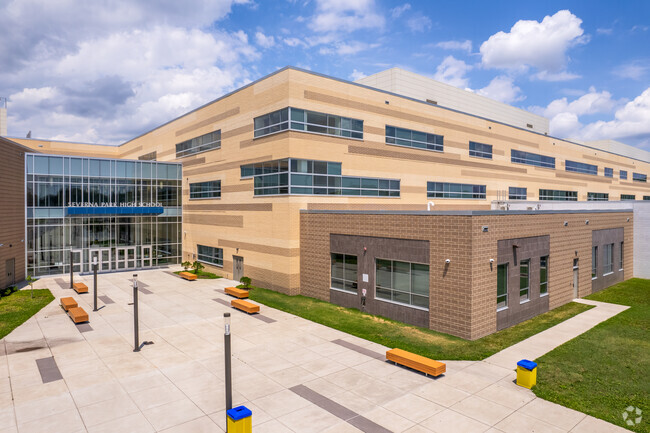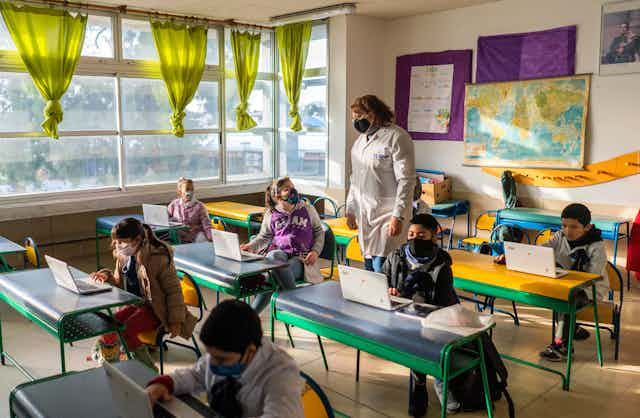The Duty of Parents and Teachers in the Initiative to Save Temecula Schools
The Duty of Parents and Teachers in the Initiative to Save Temecula Schools
Blog Article
The Effect of Institution Environments on Academic Success and Personal Health
The institution atmosphere considerably affects both scholastic success and personal well-being, including aspects such as physical format, classroom ambience, and social characteristics. The style of instructional rooms, consisting of all-natural lighting and ergonomic furniture, can improve trainees' focus and convenience. In addition, the quality of teacher-student partnerships and the nature of peer communications play essential duties in promoting an atmosphere for finding out and psychological assistance. Comprehending exactly how these numerous variables interaction to shape student end results increases important inquiries concerning maximizing academic settings for holistic growth. Exactly how can institutions strategically enhance these elements to much better support their students?
Physical Design and Layout
Exactly how does the physical format and style of an institution effect academic success? The setup and aesthetic of an institution environment can dramatically affect trainees' understanding outcomes.
Natural lights and efficient air flow systems are pivotal in improving cognitive feature and lowering absence. Studies have shown that classrooms with adequate all-natural light enhance trainee focus and decrease sensations of sleepiness. Furthermore, ergonomic furniture tailored to trainees' demands can stop physical discomfort, enabling prolonged focus and involvement in academic activities.
Accessibility to outside spaces and cosmetically pleasing environments likewise play a critical duty - Save Temecula Schools. Environment-friendly spaces and well-maintained school premises give chances for workout and mental relaxation, both of which are essential for preserving high degrees of academic efficiency. In essence, an attentively made physical atmosphere can act as a driver for scholastic quality, fostering an atmosphere that sustains both teaching and understanding
Classroom Atmosphere
A setting that fosters a feeling of safety and security, inclusivity, and common regard motivates trainees to involve more proactively in their knowing processes. The setting of a class, including facets such as illumination, sound levels, and seating setups, can considerably affect student concentration and inspiration.
Additionally, the class ambience should sustain a society of partnership and open interaction. They are much more likely to involve deeply with the product and create critical believing abilities when trainees really feel comfortable revealing their concepts and asking concerns. Peer interactions and group activities can enhance knowing by providing varied viewpoints and fostering team effort
Moreover, developing clear assumptions and regular regimens can produce a structured setting that enables students to concentrate on their research studies. By reducing uncertainty and providing a foreseeable framework, students can better manage their time and obligations. Eventually, a positive classroom atmosphere not just boosts scholastic performance but additionally contributes to the total well-being of students, preparing them for future academic and individual endeavors.
Teacher-Student Relationships
Structure on the importance of a positive class atmosphere, the connections in between pupils and educators play an essential function in forming academic success. A healthy and balanced teacher-student partnership cultivates a discovering atmosphere where trainees really feel valued, comprehended, and supported, which significantly boosts their motivation and involvement. When students view their teachers as approachable and understanding, they are more most likely to take part actively in course and seek aid when required, contributing to a much deeper understanding of the subject.

This count on makes it possible for pupils to express their issues and ideas freely, fostering a collective knowing setting. In essence, strong teacher-student connections are a cornerstone of academic success, playing an important role in both scholastic achievement and individual development.
Peer Interactions
Peer communications considerably influence academic success by forming a trainee's cognitive and social growth. Favorable peer interactions can enhance a pupil's inspiration and involvement in academic my company tasks with collective learning and shared assistance.

Efficient peer interactions additionally add to the development of vital life abilities, such as problem, collaboration, and interaction resolution. These social competencies are vital for both academic success and individual health, underscoring the importance of fostering positive peer characteristics within the college setting.
After-school Activities
Engaging in extracurricular tasks plays an essential function in a trainee's scholastic success and individual growth. Research study continually indicates that pupils who get involved in extracurricular tasks tend to achieve greater academic efficiency.
Moreover, extracurricular participation cultivates a feeling of belonging and area, which is necessary for individual health. Taking part in team tasks allows students to develop and reinforce social networks, improving their social and psychological intelligence. These communications are vital for creating social skills that are helpful in both scholastic and future expert atmospheres.
In addition, extracurricular tasks supply a useful outlet for students to discover their passions and passions past the common educational program. This expedition can cause the exploration of brand-new talents and prospective occupation paths, further encouraging students to engage even more deeply in their scholastic work. To conclude, the function of after-school activities expands beyond plain leisure; they browse around here are important to fostering an alternative instructional experience that promotes both academic success and individual development.
Conclusion
Thoughtfully made physical designs and class, along with positive teacher-student connections and positive peer interactions, substantially improve pupil motivation and interaction. These components jointly emphasize the significance of developing and maintaining optimal college settings for the benefit of students' individual and academic development.
Eventually, a positive class ambience not just boosts academic efficiency however also adds to the general wellness of pupils, preparing them for future instructional and individual ventures.

Report this page